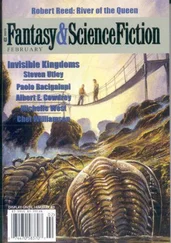Deke took a breath. “Yeah. Me too.”
“You’re serious,” Pax said.
Deke squatted beside him, his forearms resting on his knees. “I have a temper problem.”
“What? You’re the calmest guy I know.”
“I’m the carefullest guy you know,” Deke said. “I slipped up once. Now I have to… Well. Let’s just say I keep a close watch on this heart of mine.”
Pax laughed, and then they lapsed into silence. They sat without talking for several minutes. In the north people didn’t just sit, Pax realized. Not unless they were on the bus or trapped in a waiting room. You said what you needed to say, then you moved on. At some point in the past dozen years he’d stopped noticing the Yankee rush to fill the silence.
Pax said, “So did you know about this stuff? That she was online, talking to people about Switchcreek?”
Deke exhaled heavily. “I didn’t know, but it didn’t surprise me. Jo didn’t have many people to talk to in this town-people who could keep up with her, anyway. You know how she was. Didn’t suffer fools.”
“Oh yeah.” She had scholarship brains. Nobody had expected her to stay in Switchcreek-until the Changes. Until she got pregnant. “You think Jo believed all that crazy shit Weygand was saying? I mean, her own girls. She couldn’t really think they were…” He gestured vaguely. “Alternate universe babies.”
“Just because she was smart doesn’t mean she was always right,” Deke said. “Look.” He reached into his back pocket and pulled out a wallet the size of a bank bag. With his thick fingers he fished out a heavily creased piece of paper and handed it to Pax.
Pax unfolded it. It was a printout of a black-and-white photo, a long-range shot blown up to the point of blurriness. In the foreground were pine trees, a chain-link fence topped with barbed wire. Beyond the fence was a wide, snow-covered plain. Half a dozen low, barracks-like buildings sat in the distance. Three figures were moving between two buildings. Two of them were clearly argos, all long arms and sloped back. Running ahead of them was a much smaller figure moving on all fours. Scale was difficult to assess, but considering the size of the argos, the third figure could have been a pony or a large dog.
“Jo gave that to me a couple years ago,” Deke said. “She found it on the web. Said it came from China.”
“Wait-argos in China?”
Deke shrugged.
Pax said, “What’s that other thing, in front of them?”
“Can’t you tell? That’s an argo child.”
Pax stared at the picture. “No fucking way.”
“There’s all kinds of theories. People think there was another Change, before Switchcreek. Completely covered up. Or maybe more than one-China in the sixties, Russia in the eighties. Or in the States, the usual secret military base in the desert. All that Area Fifty-one shit.”
Pax said, “So this picture-”
“Doesn’t mean a damn thing.”
“What?”
Deke held out a hand, and Pax gave the paper back to him. “It’s a hoax, P.K. Urban myth, like Sasquatch. There’s dozens of pictures like these on the web. Hundreds maybe. It’s all done with computers, people jackin’ around.” He folded it up and placed it back in his wallet. “Argos in Mexico, betas in the northwest, chubs hanging out with Elvis. This ain’t even one of the convincing ones.”
“But if Jo gave it to you she must have thought-”
“Jo wanted to be fooled as much as anyone, Paxton. No one wants to think we’re alone out here. It’s the town disease.”
THE SMELL OF the house was driving him crazy.
His father’s scent seemed to have infused every surface: the carpets, the cloth of the furniture, the walls. The smell couldn’t have been much different than a few days ago, but it seemed worse to him now that he knew the taste of fresh vintage. Now Pax could smell only the decay, the corruption of the pure product, like a fruit farmer attuned to the taint of rot.
He opened all the windows and set up fans in the front and back screen doors to start a cross-draft, but the humidity only seemed to give weight to the odor, turning it into something physical that shifted in strength and intensity, moving from room to room like an animal.
He tried to ignore it. He went through his father’s pile of mail, sorting junk from bills and bank statements, with the idea that he should figure out if his father was in financial trouble, but he quickly lost concentration. He couldn’t even watch TV; the scent of his father was strongest there by the couch. Finally he fell asleep in the guest room with an arm thrown over his face.
When he awoke the next morning he was damp and aching and the scent was still with him.
I should leave now, he thought. Get dressed and drive out of Switchcreek as fast as I drove in.
He went to the bathroom, stripped, and sat on the edge of the tub for a long time waiting for the water to get hot. Despite the hollowness in his stomach he had no appetite. Finally he stepped under the shower, steadying himself with one palm against the tile.
Leave or go, he thought. Back to Chicago, or sink back into the life he’d left when he was fifteen? There was hardly anything calling him back to the city. He’d probably been fired from the restaurant by now. And there was no one back there who’d miss him, not really. He had coworkers, and people he got drunk with, and coworkers he got drunk with. Had even one of them called him to see if he was okay? Okay, his cell phone was dead and he hadn’t packed the charger, but even if they had called, was there one of them he would have felt compelled to call back? People around him fell in and out of love affairs-some of them even got married-and he had no more interest in their dramas than he did for his father’s Discovery Channel documentaries. Fuck or don’t fuck. Move in together or not. Don’t dress it up in all this costume emotion to make it seem important. There’d been a few women and a couple of men who’d wanted more from him, who wanted a relationship . But Jesus, no. He’d never had to do much to drive them away. He didn’t have to be mean, or push them away. He simply shut off whatever part of him he’d let slip, whatever glimmer of him that made them think they knew him. Once he sealed that crack, soon enough they went away on their own.
He dried off and walked naked down the hallway. He knew there weren’t any clean clothes left in his suitcase; he’d only expected to stay a couple of days. He walked past the guest room to his father’s room and pushed open the door.
The room looked much as it had a dozen years before: a long, mirrored bureau, wood veneer bedside tables, the long gauzy drapes his mother had liked. The bed was unmade, the bedclothes pushed against the wall. The box spring had been lifted off the frame and reinforced by a row of two-by-fours, but his father’s weight had still pressed a hollow into the mattress.
A pile of clothes lay on the floor beside the bed. Pax picked up a huge white T-shirt. He rubbed it through his hands, then lifted it to his face. He inhaled, breathed out, and inhaled again. The smell of the vintage swam thickly into his nose, his lungs.
He dropped the shirt over his head. The wide neck hung lopsided on his shoulders, open to his collarbone; the hem reached to his knees. He held out his arms and looked down at himself. The shirt was as big as a tablecloth.
He imagined his father laid out on some bed at Rhonda’s Home, staring down the expanse of his body. Waiting.
He took off the T-shirt, went to the closet. He pushed aside hangers until he found his father’s old clothes, from before the Changes. He pulled on a striped button-down shirt-several sizes bigger than what he wore, but in the realm of the wearable-then went back to the guest room to find his jeans.
Читать дальше









